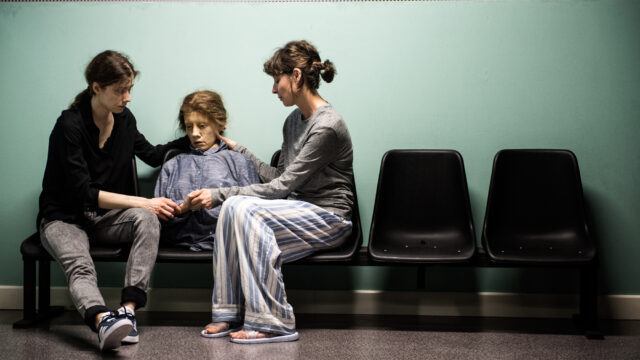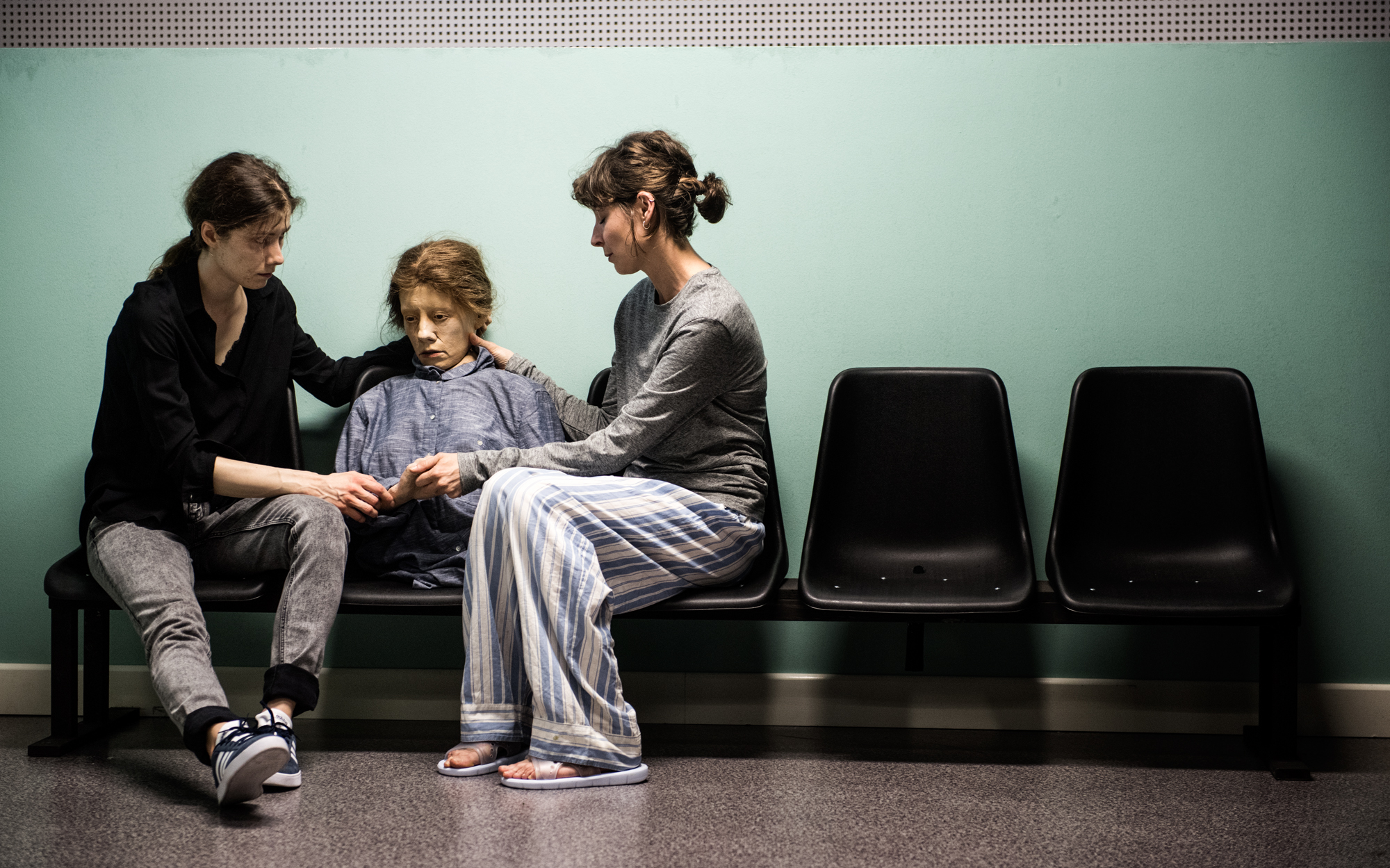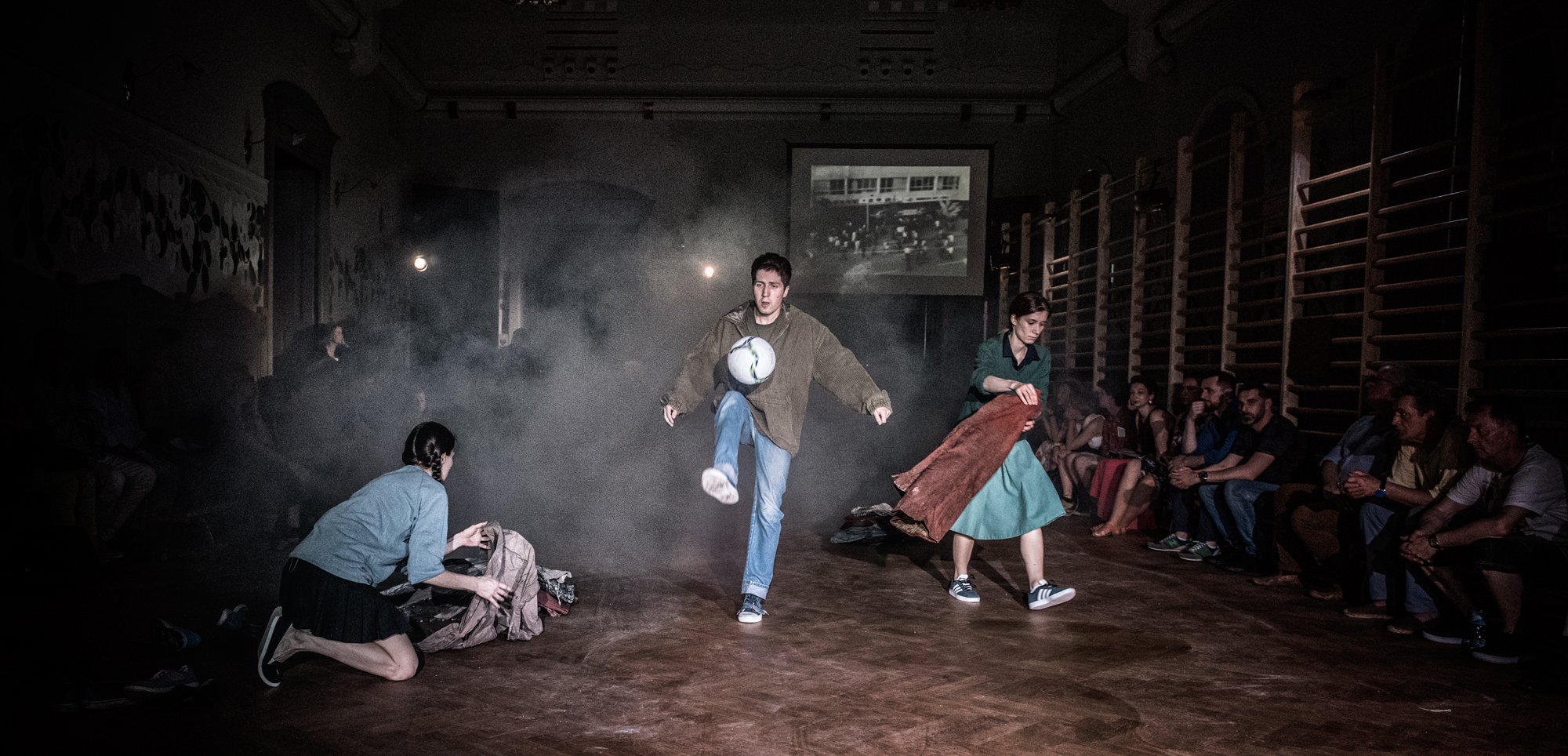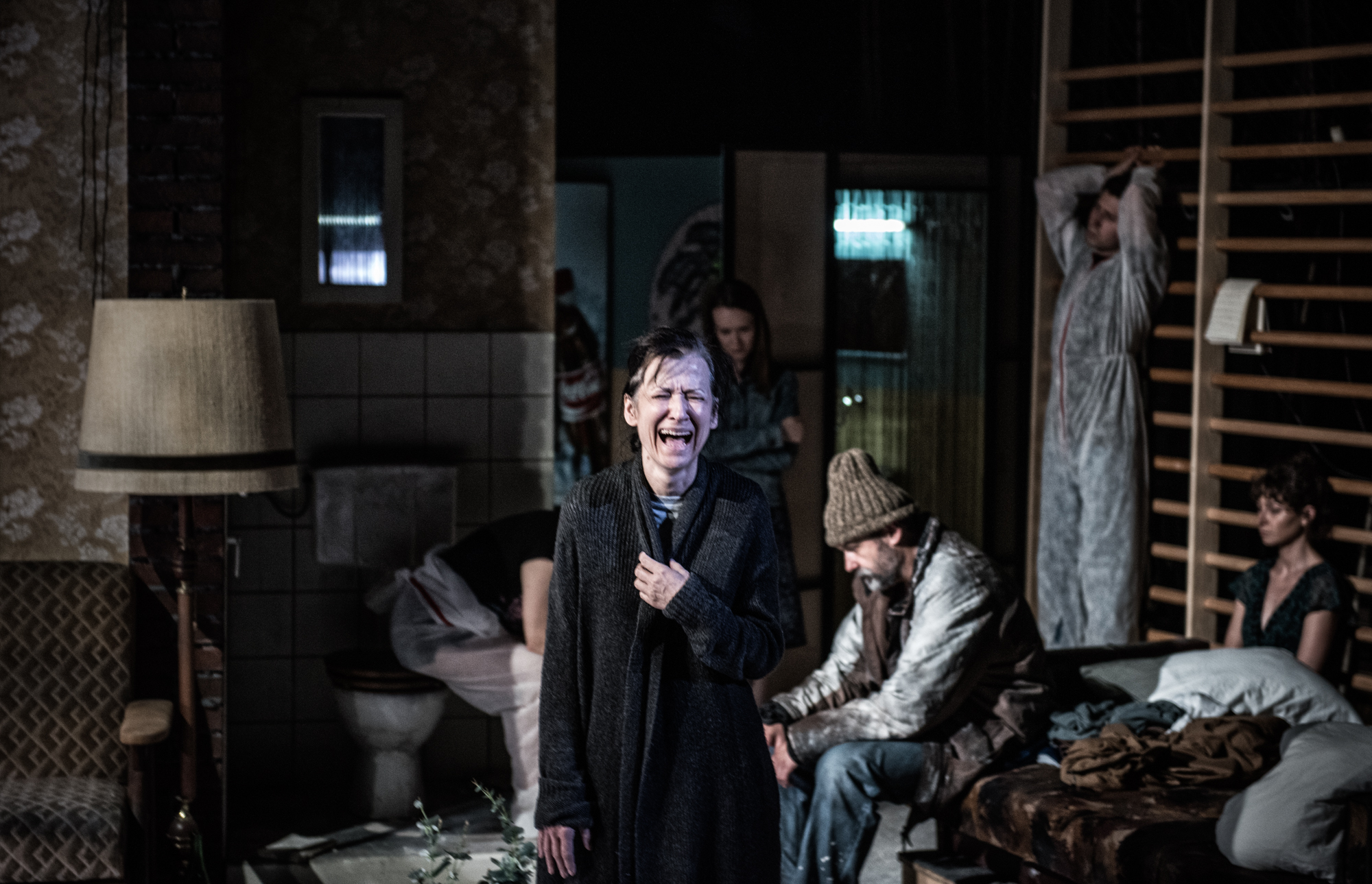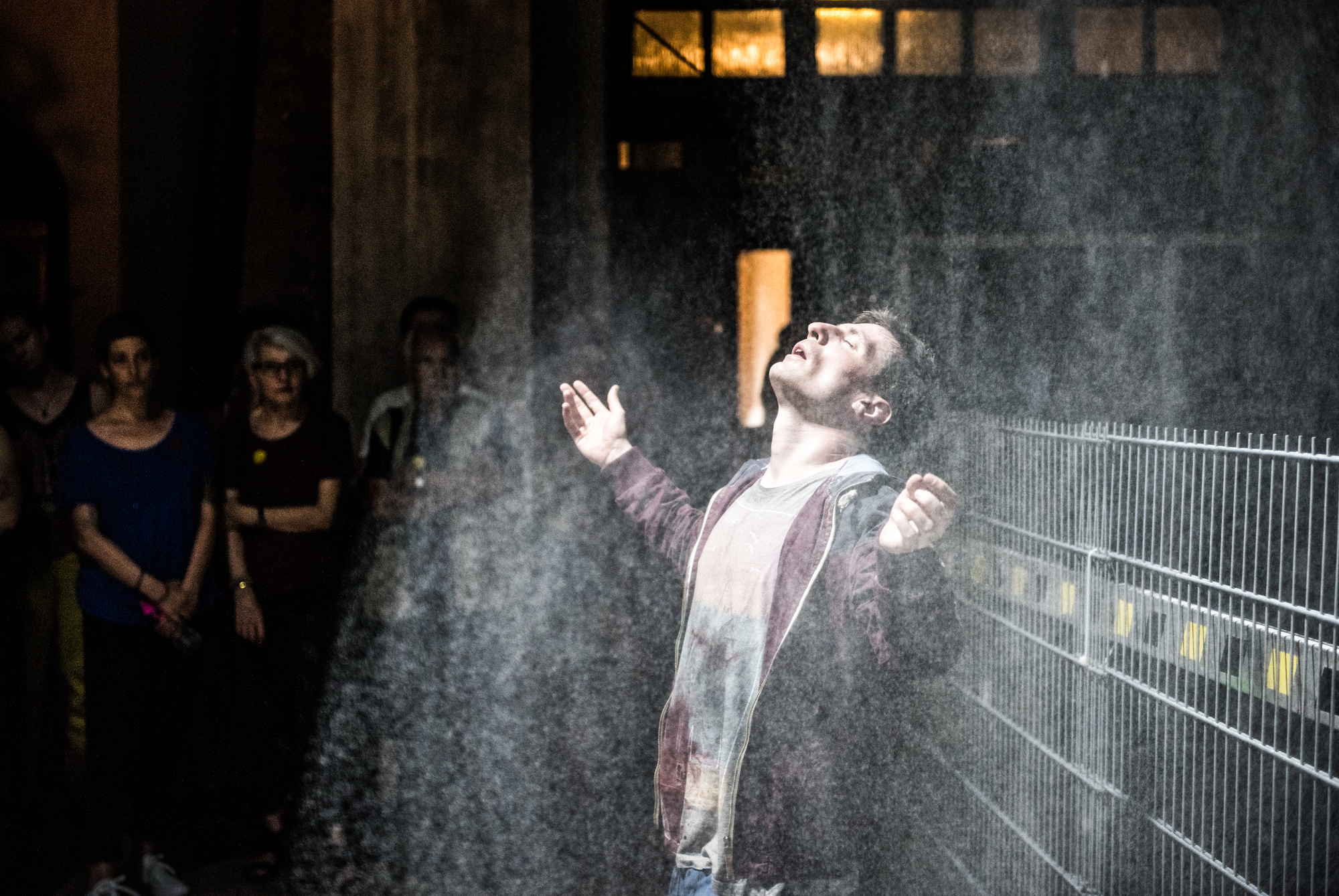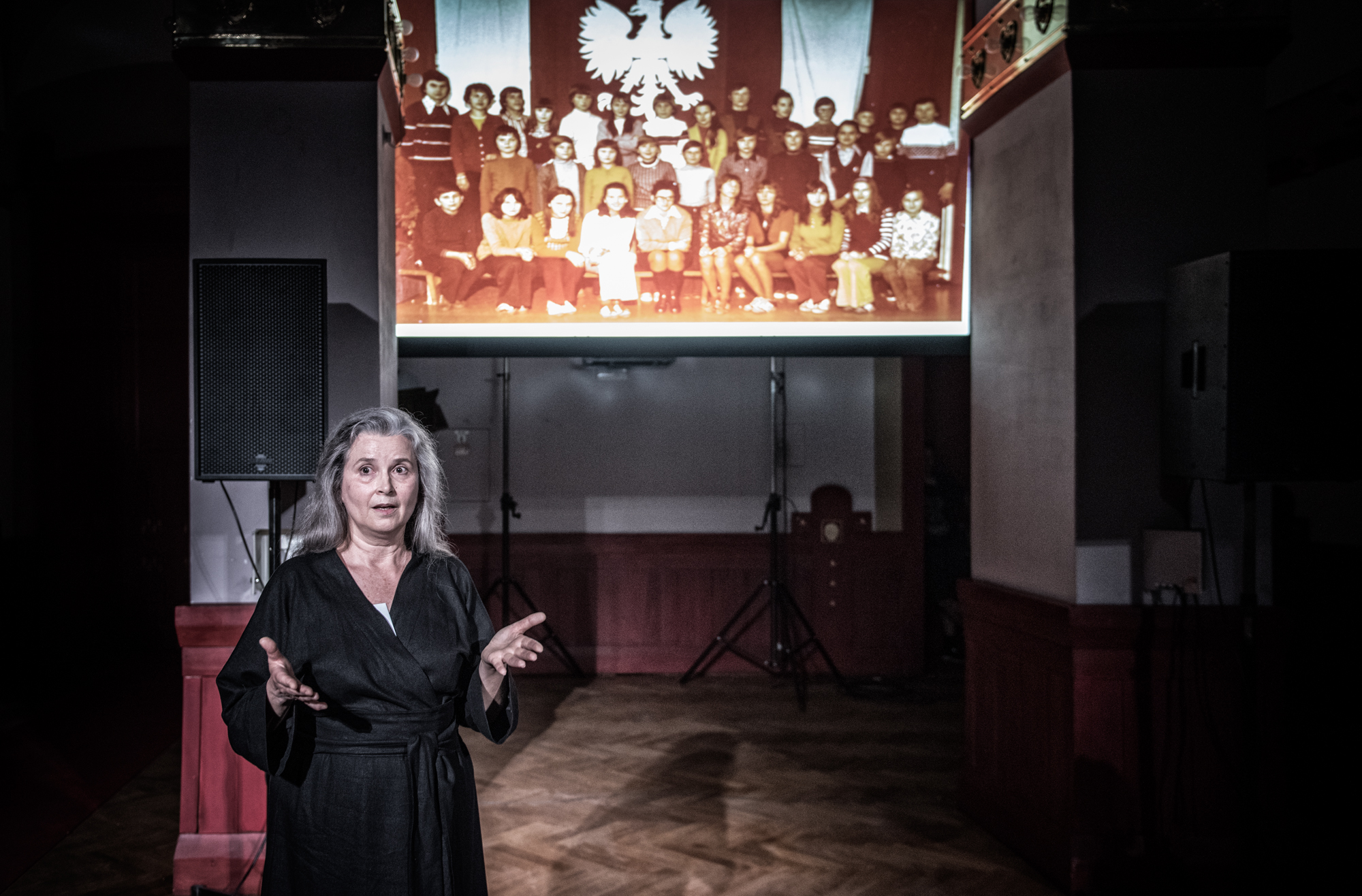Repertoire
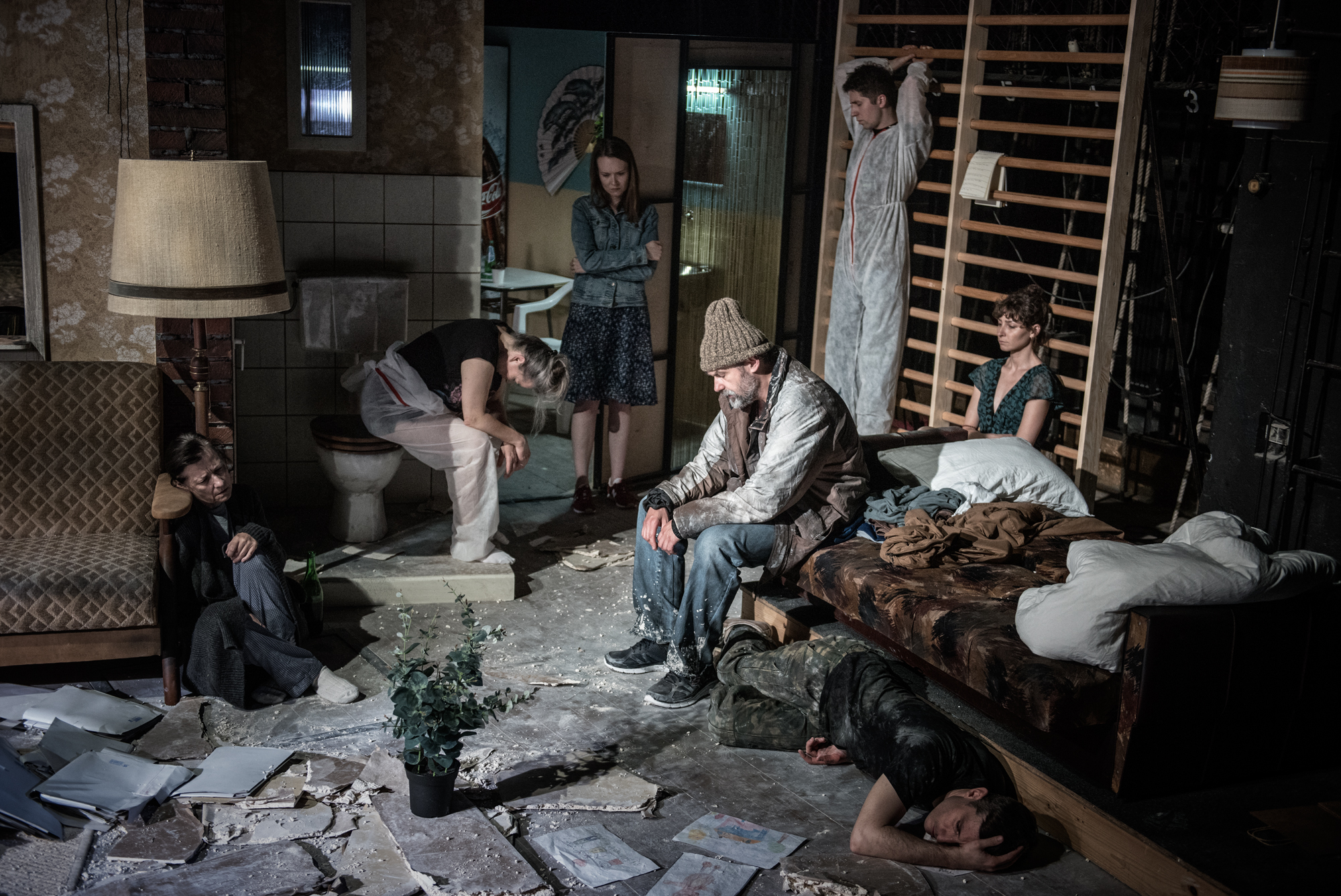
The Boy is Coming
Dir. Marcin Wierzchowski
ul. Jagiellońska 1
Premiere
date
2021
When we play
- 15.06
2019 - 16.06
2019 - 18.06
2019 - 21.06
2019 - 03.10
2019 - 04.10
2019 - 05.10
2019 - 06.10
2019 - 04.12
2019 - 05.12
2019 - 07.12
2019 - 08.12
2019 - 15.01
2020 - 16.01
2020 - 17.01
2020 - 18.01
2020 - 07.02
2020 - 08.02
2020 - 09.02
2020 - 26.03
2020 - 27.03
2020 - 02.10
2020 - 03.10
2020 - 04.10
2020 - 18.03
2022 - 19.03
2022 - 20.03
2022
Duration
1 intermission
Right in front of the viewers, in a gymnasium in the Korean town of Gwangju, lie the bodies of victims, mainly university students, murdered during a democratic uprising. They are washed and identified by the gymnasium students, among them the fourteen-year-old Tong-Ho (Mikołaj Kubacki/Maciej Sajur), a future victim of military terror. Wandering through the theatre’s most intimate crannies, we trace back his story, told by the people most touched by his death – family, friends, and total strangers who witnessed his execution.
In Marcin Wierzchowski’s play death is close by, tangible, like cracks in glass. Its cracks extend far, cutting through the lives of numerous people who are distant in time and space. The cracks have spread from Korean writer Han Kang’s novel The Boy Is Coming to Poland (in the second part of the play), where, over forty years later, during another mass murder, we see the death of another young person – Filip (Szymon Czacki). Can we draw some truth about the nature of the human being from this story? Can we look at a place as remote as South Korea as we would in a mirror and understand something about ourselves? Is there anything it can tell us about the soul?
Our theatrical tale digs into our hidden anxieties about the future and seeks responses as to whether what is divided can be salvaged so that it is stronger and more beautiful than it was before the rupture. Like a shattered plate repaired with gold by a Japanese kintsugimaster.
Wierzchowski makes us want to delve deep into this nearly five-hour (!) play, we want to listen to it, experience it, walk through the theatre, freeze ourselves in the Stary’s drafty corridors, and squeeze into a tiny, dusty office. Theatre is just within arm’s reach. So is war.
Dawid Dudko, kultura.onet.pl
Cast
- Małgorzata Gałkowska
- Magda Grąziowska, Małgorzata Gałkowska **
- Beata Paluch
- Anna Paruszyńska - Czacka
- Dorota Pomykała
- Paulina Puślednik, Magda Grąziowska
- Bolesław Brzozowski **
- Juliusz Chrząstowski
- Szymon Czacki
- Zbigniew W. Kaleta
- Urszula Chrzanowska ( a guest actress)
- Lidia Duda
- Maciej Sajur ( a guest actor), Mikołaj Kubacki **
Creators
- Justyna Najbar-Miller Translator
- Marcin Wierzchowski Director
- Daniel Sołtysiński, Marcin Wierzchowski Dramaturgy
- Anna Maria Karczmarska Set design / costumes
- Olga Ryl-Krystianowska Puppets
- Michał Litwiniec Music
- Tomasz Wolski Video
- Zbigniew S. Kaleta Stage manager / prompter
- Tomasz Fryzeł (WRD AST) Assistant director
- Ewa Pieronkiewicz (ASP) Assistant scenographer
